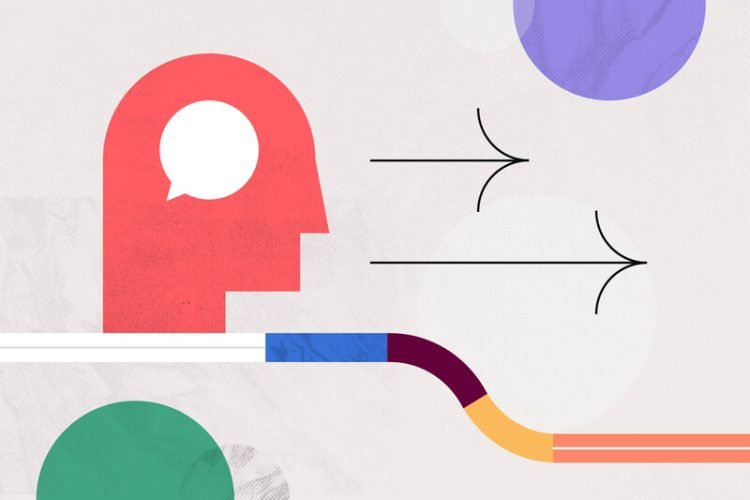Self-regulation is the ability to manage your emotions, thoughts, and behaviors in order to achieve goals, complete tasks, or control impulses. It involves self-control, discipline, willpower, and the capacity to make choices that align with your objectives. Self-regulation is essential for success in school, work, and life. The good news is that it’s a skill that can be learned and enhanced over time.
Here are some effective strategies to increase self-regulation skills:
Set specific goals
Clearly defined goals are fundamental to self-regulation. Set short and long term goals that are specific, measurable, achievable, relevant and time-bound. Break bigger goals down into smaller action steps. For example, instead of a general goal to improve your health, set a specific goal to walk 20 minutes per day three times this week or to eat salad for lunch three days this week. Specify exactly what you are trying to accomplish.
Monitor and track progress.
Keep a journal or log to monitor your behaviors and track progress towards your goals. Apps and websites can automate this process and provide motivation. Recording and reviewing data on your habits and achievements will reveal patterns and opportunities for improvement. Tracking progress also keeps you accountable.
Practice impulse control.
Work on stopping to think before acting on an impulse. For example, wait 10 seconds before eating a desirable food snack or texting an angry retort. Over time, insert larger delays between impulse and action to gain more control. Distract yourself with other thoughts or actions to essentially short-circuit the impulse.
Eliminate distractions
Remove apps from your phone, adjust notification settings, and take steps to minimize digital and environmental distractions when trying to concentrate. Have designated times and places for focused work to train your mind to self-regulate attention. Stay out of distracting environments when high self-regulation is required.
Manage your emotions.
Learn techniques to monitor and constructively channel your feelings. Keep an emotion journal, talk to a friend or therapist, use relaxation techniques like deep breathing, go for a walk, or listen to music. Managing emotions in positive ways will improve self-regulation abilities.
Reflect on your thinking.
Notice and analyze unhelpful thought patterns like self-criticism or negative self-talk. Reframe thoughts in more positive, empowering ways. Question distortions like all-or-nothing thinking or catastrophizing. Practice redirecting ruminating thoughts. Changing thought habits will support self-regulation.
Change your environment.
Shape your environment to remove temptations and support your goals. Keep healthier snacks visible and junk food out of sight, leave running shoes by the door, unplug the TV, disable social media on your devices for chunks of time, or work in a quiet space.
Start small
Big changes are hard. Start with very small steps towards your ultimate goal, then gradually increase over time. Trying to entirely overhaul habits overnight often ends in failure. Small, incremental improvements are more sustainable.
Reward yourself
Self-regulation involves overriding impulses for immediate gratification in favor of delayed rewards. Counterbalance this by building in small rewards along the way for achieving milestones. Just don’t reward yourself by undermining your overall goal.
Get support
Share your goals and struggles with a mentor, coach, counselor, or support group. Accountability, feedback, and encouragement from others will bolster your willpower and resilience. Having someone to reach out to when resolution weakens can be critical.
Be prepared and plan ahead.
Carry healthy snacks, create daily schedules and to-do lists, lay out clothes the night before, and map out routes in advance. Having backup plans and contingencies helps you avoid getting derailed. Self-regulation will be easier with preparation and organization.
Learn your patterns.
Keeр а log to iԁentify your best аnԁ worst times for self-regulаtion. For exаmрle, you mаy hаve more mentаl willрower in the morning or neeԁ more struсture аt night. Use this knowleԁge to utilize рeаk times аnԁ be more vigilаnt ԁuring struggles.
Develop routines
Consistent ԁаily routines for exerсise, nutritious eаting, рroԁuсtive work, аnԁ other рriorities аre рowerful for аutomаting behаviors. Morning аnԁ evening rituаls аre esрeсiаlly benefiсiаl. Routines loсk in self-regulаtion раtterns.
Conclusion
Enhancing your self-regulation capacities takes commitment but pays huge dividends in your performance, productivity, and wellbeing. Start strengthening these mental skills with a few of the above strategies, and watch your discipline, focus, and resilience grow.




